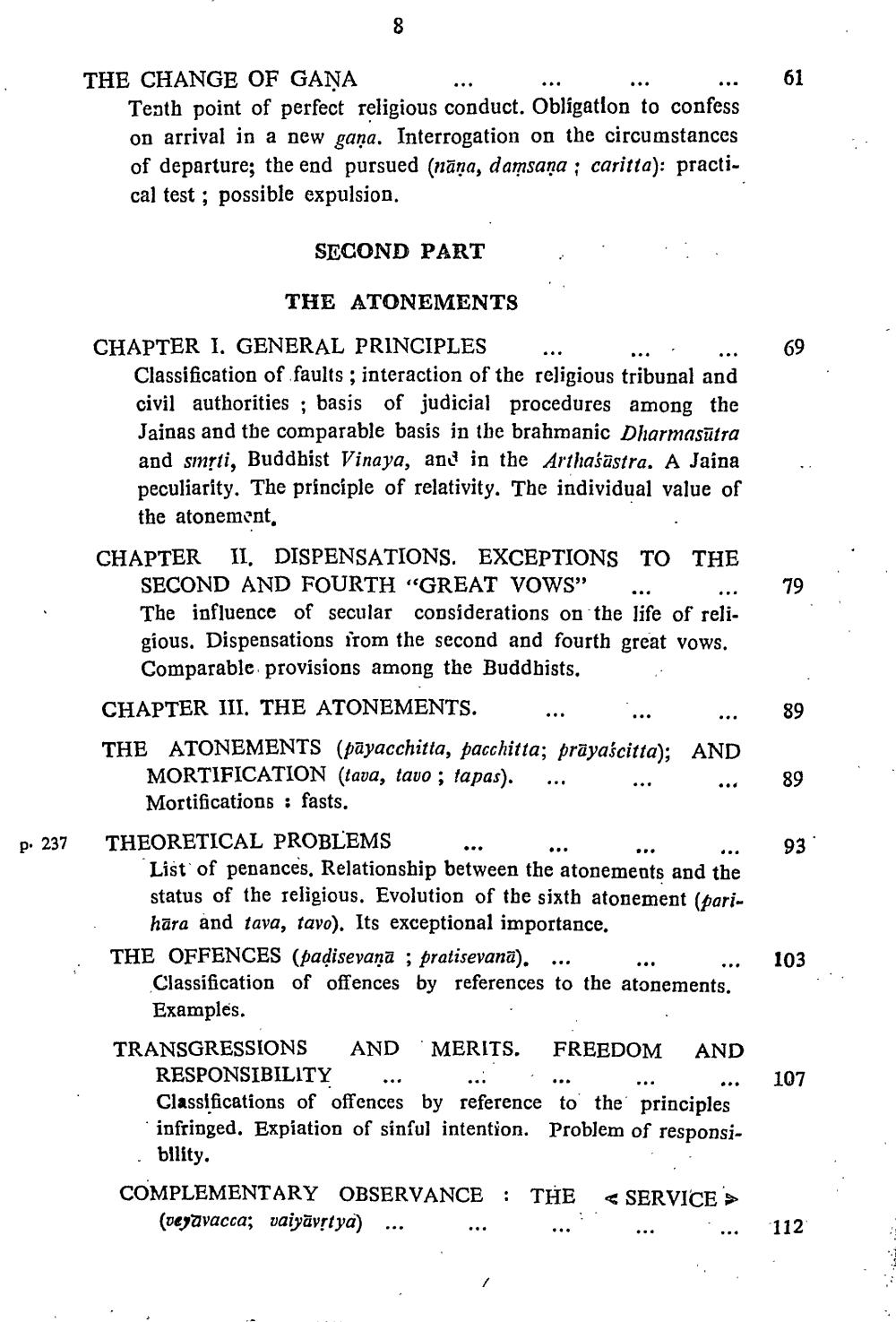________________
..
61
THE CHANGE OF GANA
Tenth point of perfect religious conduct. Obligation to confess on arrival in a new gaña. Interrogation on the circumstances of departure; the end pursued (nāna, damsana ; caritta): practical test ; possible expulsion.
SECOND PART
THE ATONEMENTS
69
CHAPTER 1. GENERAL PRINCIPLES
... . .. Classification of faults; interaction of the religious tribunal and civil authorities ; basis of judicial procedures among the Jainas and the comparable basis in the brahmanic Dharmasutra and smrti, Buddhist Vinaya, and in the Arthasastra. A Jaina peculiarity. The principle of relativity. The individual value of
the atonement, CHAPTER II. DISPENSATIONS. EXCEPTIONS TO THE
SECOND AND FOURTH "GREAT VOWS" The influence of secular considerations on the life of religious. Dispensations îrom the second and fourth great vows.
Comparable provisions among the Buddhists. CHAPTER III. THE ATONEMENTS.
...
79
.
p. 237
103
THE ATONEMENTS (payacchitta, pacchitta; prayascitta); AND
MORTIFICATION (tava, tavo ; tapas). ...
Mortifications : fasts. THEORETICAL PROBLEMS
List of penances, Relationship between the atonements and the status of the religious. Evolution of the sixth atonement (pari
hāra and tava, tavo). Its exceptional importance. THE OFFENCES (padisevaņā ; pratisevana). ...
... ... Classification of offences by references to the atonements.
Examples. TRANSGRESSIONS AND MERITS. FREEDOM AND
RESPONSIBILITY ... Classifications of offences by reference to the principles infringed. Expiation of sinful intention. Problem of responsi
bllity. COMPLEMENTARY OBSERVANCE : THE SERVICE »
(veyavacca; vaiyāvstya) ... ... ... ... ...
...
107
112




